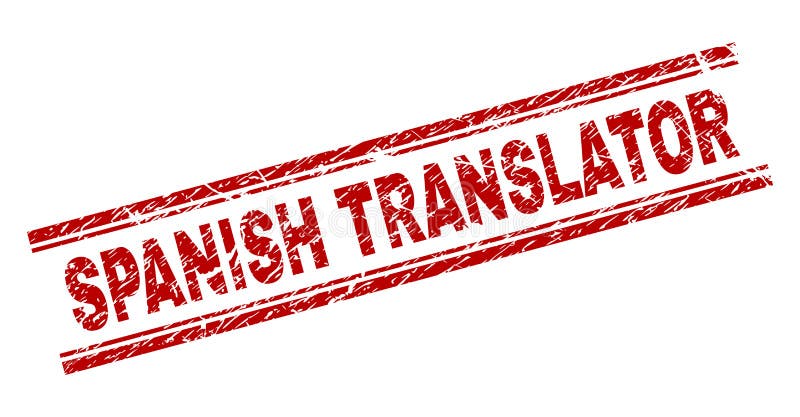
The goal is always to ensure you’re not alienating anyone - either with some sort of artificial, internationalized form of Spanish or with local expressions from a very different variant. Spanish is a rich and diverse language, and you’ll need to take this into account when targeting Spanish speakers, whether it’s audiences all around the world or a specific market in one country. If your potential audience is large enough in several different Spanish-speaking countries, then you should consider getting different translations for each Spanish dialect. Start by looking at your research data to figure out what Spanish-speaking areas you’re getting the most attention from.

Figure out which Spanish dialect you need ¡Vamos!īut where do you begin? How do you choose a translator? How do you make sure you end up with a great Spanish translation? Here are 10 tips that will help you answer these and other questions you might have. Which means getting your copy and content translated into Spanish. Next step? It’s time to adapt and properly launch your products in these new markets. You’ve done some research and the data shows there’s interest in Spanish-speaking markets. Your business is thriving and you’re ready to go global. This research can give you a better idea of what level of mastery of Spanish you will need, and can help you decide what kind of educational setting will best help you build the required skills.Share: 10 tips to get the best English-to-Spanish translations Need translations? Try Smartcat for free!
FORMAL SPANISH TRANSLATOR FULL
However, other positions may not need full proficiency and may only require conversational language skills.īefore you decide which educational path to embark on, research the general requirements for the career you are interested in, and comb through the job descriptions for roles at potential employers where you could see yourself working in the future. A Spanish translator or Spanish teacher, for example, could be expected to have a mastery of the language depending on the context in which they work.
FORMAL SPANISH TRANSLATOR PROFESSIONAL
The level of Spanish you will need to know, and the educational path that is right for you, will depend on your personal and professional goals. Careers for Spanish speakers: Where to begin? Explore the range of educational opportunities available on edX, which includes everything from individual courses to full bachelor’s degree and master’s degree programs. Begin building your language skills today. Spanish language skills can be an asset for professionals or organizations trying to connect with customers in other countries, or tap into underserved markets and clients within their own communities. Hospitality professionals: use Spanish to communicate with guests.Ĭustomer service or sales representatives: use Spanish to assist Spanish-speaking customers. Medical professionals: use Spanish to communicate with patients. Travel agents: use Spanish to help customers plan trips to Spanish-speaking destinations. Immigration officers: use Spanish to assess the language proficiency of applicants. Social workers: use Spanish to better understand and serve their clients.Įducators: teach the language to students or teach Spanish-speaking students other languages. Translators and interpreters: use their language skills to help people communicate in different languages. Some of those roles can include, but are not limited to: Learning Spanish can be an asset for virtually any job, particularly if you are seeking a job in a predominantly Spanish-speaking country and do not know the language. Fluency in Spanish can also be especially important for a number of roles where communication with clients from a variety of Spanish-speaking backgrounds is key.

And it can make traveling in these locations significantly easier.

With knowledge of the Spanish language, individuals can enjoy art, music, and literature that originate from countries where it is the predominant language. The ability to communicate in Spanish also allows for a deeper understanding of the history and culture of the countries where it is spoken. Being able to communicate with Spanish speakers in their native language increases understanding and can aid in forming meaningful relationships. On a personal level, learning Spanish can open up many new avenues for exploration and enjoyment. A mastery of the language not only allows you to communicate effectively with other professionals, but it also enables you to better understand and speak to potential customers. Being able to communicate effectively in Spanish can open up employment opportunities in locations such as Latin America, the United States, and Europe. Spanish is one of the most widely spoken languages in the world, which makes it an asset for professionals conducting business in Spanish-speaking countries and across borders. Learning Spanish can provide numerous benefits both personally and professionally.


 0 kommentar(er)
0 kommentar(er)
